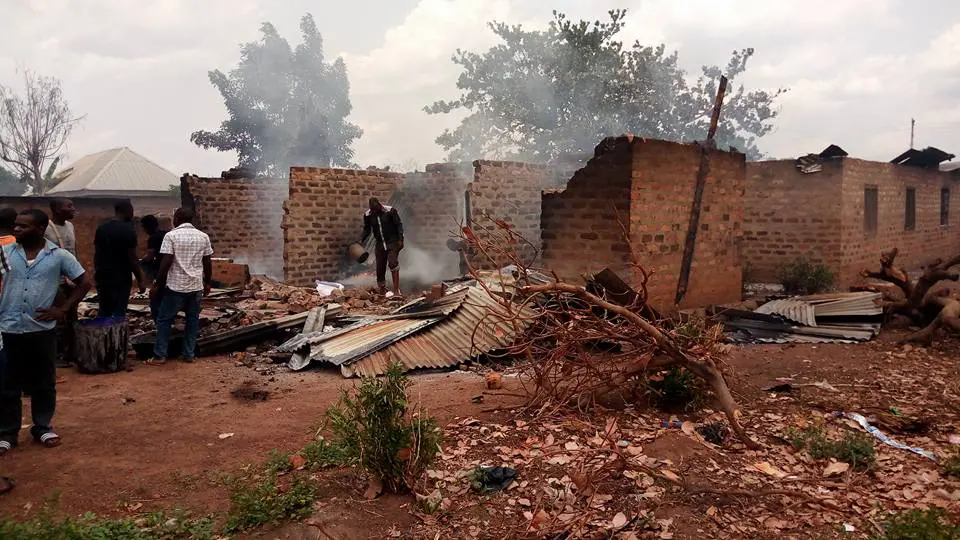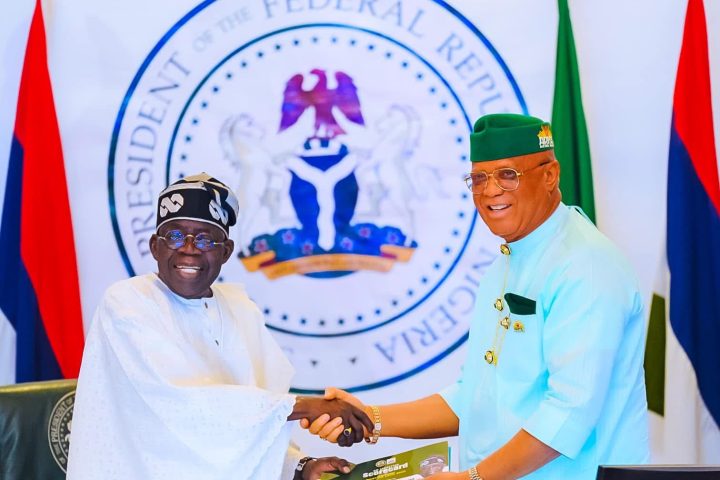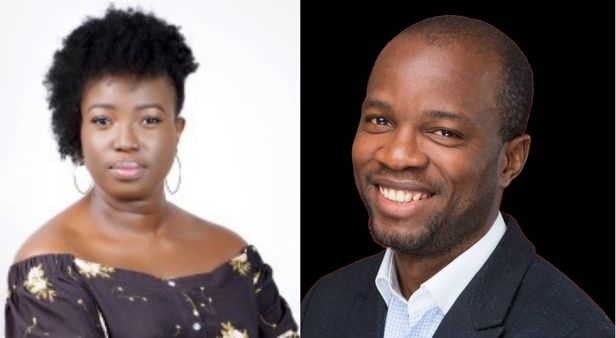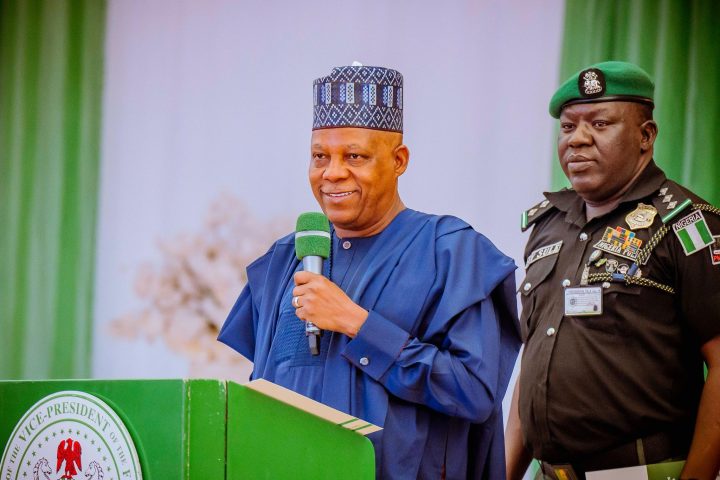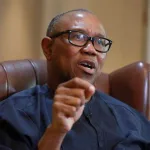The ongoing violence in Benue and Plateau states has thrown Nigeria’s agricultural development and food security into crisis mode.
With over 5,000 deaths recorded and more than 2.2 million people displaced since 2019, the attacks have not only taken a devastating toll on human life but also severely disrupted farming activities, threatening the livelihoods of millions.
Join our WhatsApp ChannelAs the country grapples with the complex issues of insecurity, climate change, and resource management, the question remains: can Nigeria find a way to address these deep-seated problems and ensure the future of its agricultural sector?
Initially, many of these conflicts were framed as clashes between farmers and herders competing over land and resources, but overtime, the violence has evolved into a more complex and deadly mix involving ethnic militias, criminal gangs, and sometimes religious undertones. These cycles of attacks, reprisals, and insecurity have deeply affected the region’s social fabric.
Reports showed that since 2019, the intensity of violence in these states has sharply increased, with over 500 deaths recorded and more than 2.2 million people displaced due to attacks and communal clashes. The situation worsened dramatically in early 2025, when coordinated attacks in both Benue and Plateau resulted in the deaths of over 284 people within just three months.
READ ALSO: Plateau Killings: Matters Arising
This trend is supported by the Nextier’s 2025 Security and Conflict Outlook in Nigeria report, which documents over 20,000 casualties from violent incidents between 2020 and 2024, with North Central Nigeria, including Benue and Plateau, heavily affected by farmer-herder conflicts and gunmen attacks.
The Nigeria Security Tracker by the Council on Foreign Relations also provides an ongoing, regularly updated database of political violence and fatalities across Nigeria, including detailed incident reports by state and date.
A study published in Injury Prevention 2023 highlights Plateau and Benue among the states with the highest rates of violent deaths, providing historical context for the recent surge in fatalities.
One of the deadly incidents include a December 2024 attack in Kwande, Benue, which killed 10 people, and numerous kidnappings and massacres involving sophisticated weapons.
On 7 April 2025, gunmen killed 52 people in Bokkos, Plateau State, burning homes and forcing thousands to flee. Earlier in this same month, attacks in Plateau claimed over 100 lives, while in Benue, suspected herders killed at least 56 people in Ukum and Logo local government areas.
Possible causes: grazing rights, climate change, jihad, fight over shrinking resources
The violence in Benue and Plateau states have stemmed from multiple intertwined causes. But issues over grazing rights and farmland remains a central trigger.
These disputes often take on ethnic and religious dimensions, with many herders being Fulani Muslims and farmers predominantly Christian is fuelling deeper communal tensions. Organised criminal groups and ethnic militias exploit these conflicts, carrying out coordinated attacks that go beyond spontaneous clashes.
Some analysts also point to political motivations, alleging that violence is used to destabilise the government ahead of elections. This is as the struggle for ethnic and religious dominance and the presence of armed bandits or jihadist elements in the broader Middle Belt region contribute to the insecurity.
Governor Alia’s view about preventing farmers from farming
The ongoing conflict has suggested that these attacks have far-reaching consequences on Nigeria’s agricultural development.
Governor Hyacinth Alia of Benue State recently suggested that the latest deadly attacks were strategically carried out to prevent farmers from cultivating their land.
He noted that the attacks happened at the beginning of the farming season, indicating a deliberate attempt to hinder agricultural activities in the affected communities.
Although, this view highlights the ongoing conflict over grazing rights and the broader struggle for control of land resources in the state, but his statement begs for another pressing question that could be asked if the government really want to intervene: Who wants to prevent farmers?
Those who appear to want to prevent farmers from farming in Benue are primarily armed groups identified as suspected herdsmen or herders.
Some research claimed climate change is a real and significant threat to Nigerian agriculture. Scientific assessments show that rising temperatures, erratic rainfall, desertification, and more frequent floods are already reducing crop yields, shrinking arable land, and increasing food insecurity across the country. By 2050, projections indicate further declines in major crop yields, higher food prices, greater reliance on food imports, and negative impacts on GDP.
It is also possible that the claims about climate change are not true, but systematic efforts to hold Nigeria down knowing that a hungry people cannot think or do much else in terms of development
So Is external control a factor?
Eternal control might be contributing to Nigeria’s agricultural issues through influences such as international market dependencies, foreign investment conditions, global climate change impacts, and trade policies.
It is also clear that the ongoing killing of farmers, displacement of communities, and denial of access to farmlands are major factors driving the crisis. These violent attacks disrupt farming activities, destroy livelihoods, and force millions to abandon their homes and farms. This insecurity not only devastates the affected communities but also has far reaching consequences for food production, food prices, and overall national stability.
The most pressing question is: Why do the countries that show interest in Nigeria’s elections not as interested when the country begins to drift to hell. Many countries and international organisations show strong interest in Nigeria’s elections, sending observer missions, issuing statements, and emphasising the importance of democracy and stability during the voting period. However, when Nigeria faces deepening crises such as insecurity, violence, or economic hardship, these same external actors are often less vocal or visible, with their engagement largely limited to diplomatic statements or technical recommendations rather than sustained action.
Similarly, Nigerian politicians who are often silent or inactive when the country is drifting to hell typically become highly visible and vocal as elections approach. During campaigns, they tour the country, promise to address specific state problems, and present themselves as champions of the people. Yet, after the elections, many of these promises are forgotten or swept aside, and the urgent issues that dominated campaign rhetoric receive little follow-up. This cycle repeats itself, with attention peaking during elections and fading once votes are counted, leaving the real problems unresolved until the next electoral season.
Unless these violent disruptions are urgently addressed, the harm will continue to spread beyond the immediate areas, undermining Nigeria’s agricultural development and food security on a much broader scale.
The Way Forward
The way forward for Nigeria’s complex crises, including insecurity, displacement, and food insecurity, requires a multifaceted and coordinated approach.
First, immediate humanitarian assistance must continue to save lives and protect vulnerable populations, especially internally displaced persons (IDPs) and women and children affected by conflict and violence. This includes ensuring access to food, health services, shelter, and protection in displacement camps and conflict-affected areas.
Durable solutions to displacement are critical. This involves safe, voluntary, and dignified returns, local integration, or resettlement, supported by government-led action plans and international partners to rebuild livelihoods and infrastructure in affected communities.
On the other hand, adressing the root causes of vulnerability is essential. This means tackling insecurity through improved security measures, conflict resolution, and community engagement, alongside efforts to mitigate climate change impacts and manage shrinking resources sustainably.
Boosting agricultural productivity and food security calls for innovation and coordination among stakeholders. Establishing technology-driven platforms that connect policymakers, researchers, farmers, and supply chains can improve planning and responsiveness.
Revitalising institutions such as river basin authorities and leveraging local comparative advantages will enhance resilience and reduce dependence on imports.
Sustained funding and international support are vital. The World Food Programme and other humanitarian actors face funding shortfalls that risk suspending critical food and nutrition assistance. Mobilising adequate resources is necessary to prevent worsening hunger, especially during lean seasons.
Also, empowering local institutions and strengthening government leadership at all levels will improve the efficiency and impact of interventions, ensuring aid reaches those most in need and that long-term development goals are prioritised alongside emergency responses.
Dr Mbamalu, a Jefferson Journalism Fellow, member of the Nigerian Guild of Editors and Communication Consultant, is the publisher of Prime Business Africa
Dr. Marcel Mbamalu is a communication scholar, journalist and entrepreneur. He holds a Ph.D in Mass Communication from the University of Nigeria, Nsukka and is the Chief Executive Officer Newstide Publications, the publishers of Prime Business Africa.
A seasoned journalist, he horned his journalism skills at The Guardian Newspaper, rising to the position of News Editor at the flagship of the Nigerian press. He has garnered multidisciplinary experience in marketing communication, public relations and media research, helping clients to deliver bespoke campaigns within Nigeria and across Africa.
He has built an expansive network in the media and has served as a media trainer for World Health Organisation (WHO) at various times in Northeast Nigeria. He has attended numerous media trainings, including the Bloomberg Financial Journalism Training and Reuters/AfDB training on Effective Coverage of Infrastructural Development of Africa.
A versatile media expert, he won the Jefferson Fellowship in 2023 as the sole Africa representative on the program. Dr Mbamalu was part of a global media team that covered the 2020 United State’s Presidential election. As Africa's sole representative in the 2023 Jefferson Fellowships, Dr Mbamalu was selected to tour the United States and Asia (Japan and Hong Kong) as part of a 12-man global team of journalists on a travel grant to report on inclusion, income gaps and migration issues between the US and Asia.

